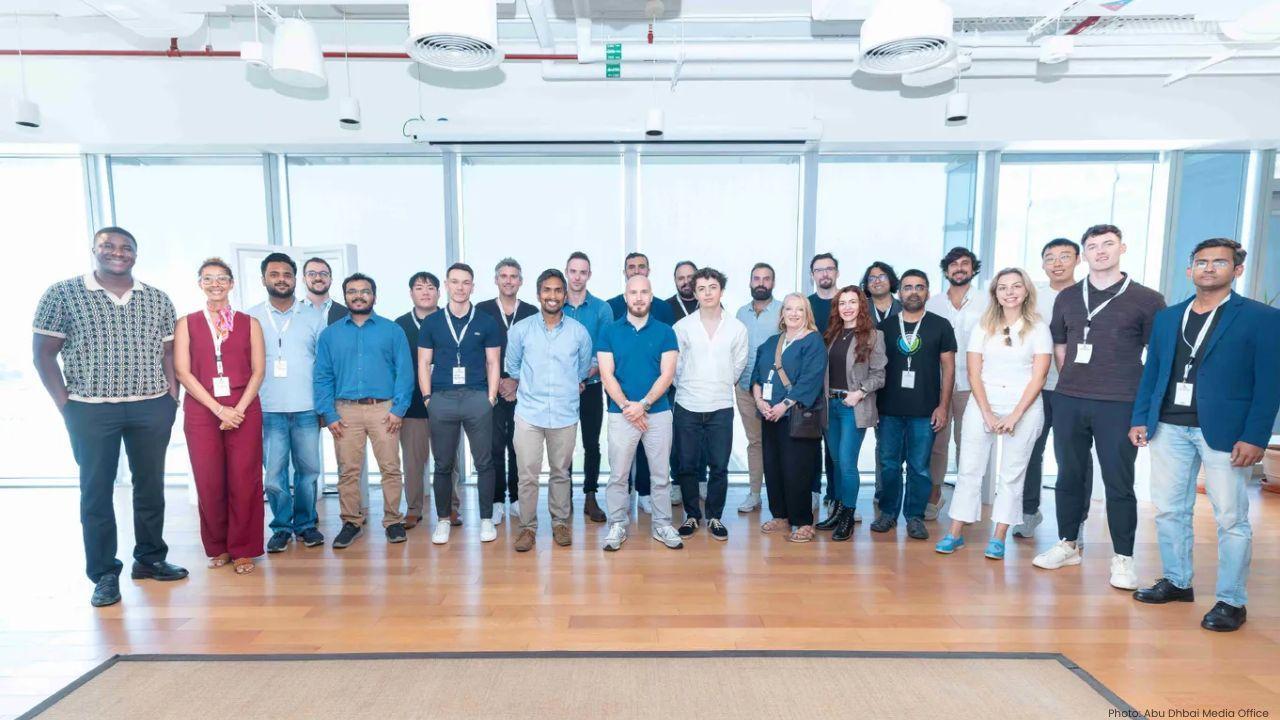
Post by : Anish
Every year, the cost of living across global cities becomes a subject of deep analysis, debate, and policy discussions. In 2025, the latest rankings have once again placed Singapore at the top of the world’s most expensive cities list, highlighting the city-state’s consistently high costs of housing, transportation, healthcare, and daily necessities. On the other end of the spectrum, cities across India and Pakistan continue to be recognized for their affordability, with Karachi, Islamabad, and several Indian metros ranking among the cheapest cities to live in. This contrast between Singapore’s soaring prices and South Asia’s budget-friendly cities tells a fascinating story about global economics, lifestyle patterns, and urban planning in today’s interconnected world.
Singapore has long been known as one of the world’s most expensive cities, and 2025 only cements this image further. With limited land availability and a highly urbanized setup, real estate prices in Singapore remain at staggering levels. Renting or buying property continues to be a significant financial commitment, even for high-income residents. Daily expenses such as dining out, utilities, and private schooling add to the overall cost burden.
Transportation in Singapore, despite being world-class, is also a major contributor to living costs. Owning a car requires a Certificate of Entitlement (COE), which alone can cost more than an entire mid-sized car in other countries. This policy, designed to limit car ownership and reduce congestion, inadvertently raises the perception of Singapore as a city where mobility is a privilege.
Yet, it is important to note that these costs come with equally high standards of living. Public safety, healthcare, infrastructure, and cleanliness in Singapore are unmatched globally. Residents may pay more, but the return is a highly efficient, safe, and modern lifestyle.
Singapore’s rise to the top of the cost-of-living index is not accidental. Its strategic global role as a financial hub, coupled with its limited natural resources and land, drives up the cost of both imports and housing. Strong demand for expatriate accommodations, international schools, and luxury services further inflates the numbers.
Currency strength also plays a role. The Singapore dollar has remained strong compared to regional currencies, which automatically makes goods and services pricier in global comparisons. Coupled with strict regulations on imports like vehicles and alcohol, this ensures that Singapore retains its high-cost reputation.
In contrast, India and Pakistan continue to emerge as global leaders in affordability. Cities such as Karachi, Islamabad, Chennai, and Ahmedabad offer some of the lowest costs of living in the world. Rent prices are a fraction of what they are in Western cities, and groceries, utilities, and healthcare remain far more affordable.
One of the biggest advantages in South Asian cities is the sheer availability of local produce and services. Domestic food production, widespread informal markets, and cost-effective labor all help keep daily expenses significantly lower than in more industrialized economies. A meal at a local restaurant, a bus ride, or even basic medical care can cost less than what one might pay for a cup of coffee in Singapore.
However, affordability also comes with challenges. Public infrastructure, healthcare accessibility, and city planning in some Indian and Pakistani cities often lag behind global standards. While expenses are lower, the quality of services may not always meet international expectations. Still, for residents and expatriates seeking cost savings, South Asia remains one of the most viable destinations.
The 2025 rankings shed light on the deepening divide between high-cost and low-cost cities. While Singapore, Zurich, and Hong Kong occupy the top tier of expense, cities in India and Pakistan dominate the affordable list. This divide reflects more than just consumer prices; it highlights disparities in wages, economic development, and urban governance.
In wealthier cities, wages tend to be higher, but so are expectations of living standards. Access to high-quality healthcare, top-class education, and reliable public services are priced into the cost of living. In developing cities, while expenses are lower, salaries are also comparatively modest. The balance between income and expenses often determines whether a city is genuinely affordable for its residents.
For expatriates, these rankings play a huge role in deciding relocation. Many multinational corporations offer cost-of-living allowances for employees stationed in cities like Singapore, Hong Kong, or Zurich, ensuring they can maintain a comfortable lifestyle despite high costs. By contrast, moving to India or Pakistan may come with lower wages but provides an opportunity to save more due to minimal daily expenses.
Businesses also look at these rankings while making decisions. High-cost cities often attract businesses due to their developed infrastructure and global connectivity, but they may deter startups that cannot afford steep rental prices. On the other hand, affordable cities like Bangalore or Karachi may become hotspots for outsourcing and operations, thanks to lower operational costs.
Tourism is another sector heavily impacted by these rankings. Singapore’s reputation as an expensive city often makes tourists budget carefully, choosing short stays or skipping certain luxury experiences. Meanwhile, India and Pakistan’s affordability attracts budget travelers, backpackers, and long-stay visitors who can stretch their money further while experiencing cultural richness.
For countries like Singapore, being labeled as expensive is a double-edged sword—it signals exclusivity and quality but also risks deterring travelers who may seek more budget-friendly alternatives in neighboring Southeast Asia.
What’s fascinating is how global trends are shaping these rankings. Inflation, currency fluctuations, and geopolitical shifts have all contributed to cost changes in recent years. The pandemic accelerated hybrid work and digital migration, allowing many professionals to relocate to cheaper cities while earning salaries pegged to wealthier regions. This shift has blurred the lines of affordability in new ways.
Cities like Bangalore, Ho Chi Minh City, and Manila are becoming more attractive to global professionals seeking balance between affordability and modern urban life. Meanwhile, traditional hubs like London and New York, while expensive, are facing competition as digital workers realize they no longer need to live in high-cost environments to thrive professionally.
Looking ahead, the question remains: will Singapore remain at the top of the expensive city list? With ongoing policies designed to manage urban density, rising global prices, and strong demand for real estate, it seems likely. However, as other Asian economies grow, cost-of-living pressures may spread across the region.
For India and Pakistan, maintaining affordability will depend on managing inflation, strengthening infrastructure, and balancing wage growth with price control. If living costs remain low while development continues, these countries could attract more expatriates, investors, and global companies looking for cost advantages.
The 2025 global cost-of-living rankings highlight stark contrasts between cities like Singapore, where living costs soar, and South Asian cities like Karachi or Chennai, where affordability remains a defining characteristic. These differences are not simply about consumer prices but about economic models, governance, and global positioning.
While Singapore exemplifies efficiency, exclusivity, and high standards, India and Pakistan represent resilience, adaptability, and affordability. Both models offer lessons to the world: one about the price of perfection and the other about the value of simplicity. As global economies continue to evolve, these contrasts will remain a vital part of conversations around where people choose to live, work, and thrive.
This article is intended for informational and editorial purposes only. The insights are based on available reports and analyses at the time of writing. Readers are advised to consider multiple sources before making financial, business, or relocation decisions.

Eid e Milad 2025 Honoring the Birth and Teachings of Prophet Muhammad
Discover Eid e Milad 2025 celebrating Prophet Muhammad s birth with prayers charity peace and te

Baaghi 4 Tiger Shroff Returns with Thrilling Action and High Octane Drama
Explore Baaghi 4 Tiger Shroff s thrilling action stunning stunts gripping story and why this Bol

Voices of UAE: Bouchra Izaabel-Transforming Fertility Care, One Heart and One Story at a Time
Transforming Fertility Care, One Heart and One Story at a Time

Nvidia Faces Uncertainty in China Amid US-China Tech Tensions
Nvidia navigates US-China tech tensions as China remains key market. Demand for advanced chips rises

Wednesday Season 3 Release Date Plot Cast and What Fans Can Expect
Discover Wednesday Season 3 release date cast plot twists and what fans can expect from the thri

Hub71 Welcomes 26 AI Startups in Largest Cohort Yet
Hub71 launches its 17th cohort with 26 AI startups from 12 countries, raising AED 818M, boosting Abu

Deepika Padukone Joins LVMH Jury as First Indian Member
Deepika Padukone makes history as the first Indian juror at the 2025 LVMH Prize in Paris, joining fa

Voices of UAE: Bouchra Izaabel-Transforming Fertility Care, One Heart and One Story at a Time
Transforming Fertility Care, One Heart and One Story at a Time

Pakistan Defeat UAE by 31 Runs in T20I Tri-Series Clash
Pakistan beat UAE by 31 runs in Sharjah T20I Tri-Series. Saim Ayub hit 69, Hasan Nawaz 56, while Has

Vice President’s Jiu-Jitsu Cup Ends with UAE Clubs Triumph
Sharjah Al Ain Al Jazira and Baniyas clubs shine as champions in the Vice President’s Jiu-Jitsu Cup

Liverpool beat Arsenal City fall to Brighton in EPL drama
Liverpool edge Arsenal with Szoboszlai’s stunning free-kick, while Manchester City suffer second str

Tawfiq wins UAE President’s Cup Arabian Horse Race in Russia
Tawfiq claimed victory at the UAE President’s Cup in Kazan, Russia, thrilling 20,000 fans with a dra

GCC Chief Urges Stronger Push on Global Free Trade Talks
GCC Secretary-General Jasem Albudaiwi pressed negotiators to intensify efforts on free trade pacts b

UAE and India Strengthen Trade Ties with Mumbai Business Talks
UAE Minister of Foreign Trade Dr. Thani Al Zeyoudi met Indian leaders in Mumbai to expand CEPA benef

UAE announces September fuel prices for petrol and diesel
The UAE Fuel Price Committee set September 2024 rates: Super 98 at AED 2.90, Special 95 and Diesel a